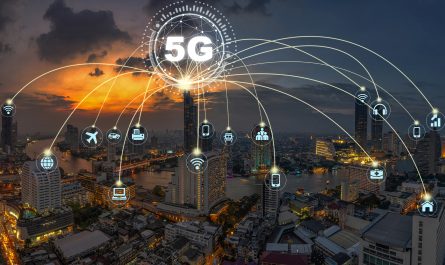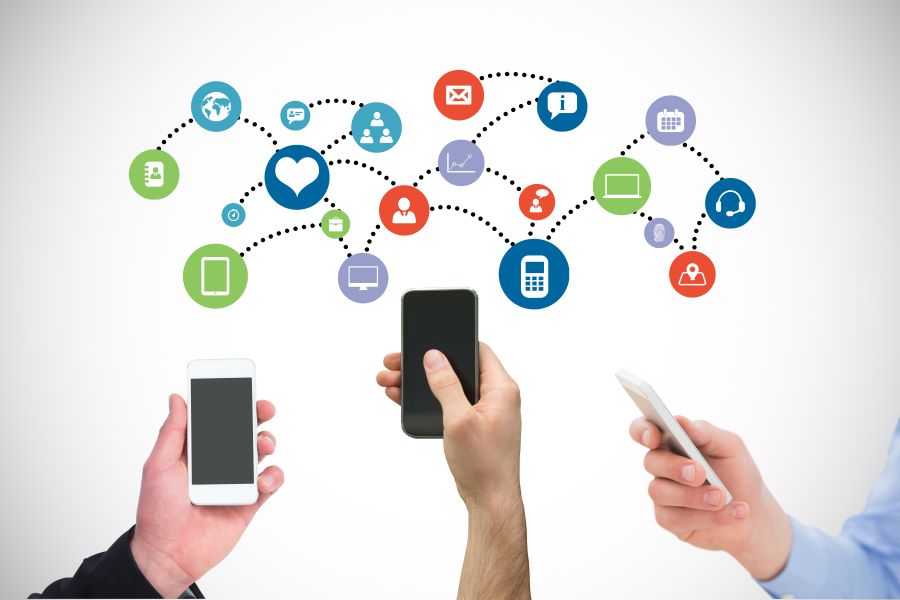5G technology is the latest in mobile technology, which means better data speeds. It’s the fastest network available to consumers and businesses. But what exactly does 5G stand for? And how does it differ from previous generations of cellular networks? And is 5G harmful to the human body?
Buy Airtel Postpaid with exciting benefits!
There’s been a lot of talk about 5G over the past few years. Many said that the invention of this new technology could harm humans in various ways. Even it was believed that 5G and Covid-19 were related. Is that all true? Well, we would say myths are always there. So, in this article, we will help you find out what 5G is, how it is different from its predecessors, and whether it is really harmful.
Let’s get started!
What is 5G?
5G is short for the 5th generation, and it is a new generation of cellular networks. It’s not just about more people using their phones. 5G will bring faster speeds, lower latency and increased reliability to mobile devices that are connected to the internet. 5G will be a mobile network, but not in the same way that 4G is.
You can expect faster content downloads and uploads with 5G than you could get on 4G. The new technology will also be able to handle more devices at once, meaning that if you’re uploading something to your social media account while watching videos on YouTube and browsing Instagram, you should be able to do all three without any noticeable lag.
Moreover 5G will be a game-changer for businesses, and it will be able to help power the Internet of Things (IoT). As more and more devices connect to the internet, they generate an increasing amount of data that needs to be stored and processed in real-time. 4G wasn’t built with this kind of workload in mind; It simply wasn’t designed for applications like autonomous vehicles or industrial equipment monitoring systems. However, 5G’s improved latency and bandwidth could revolutionize these industries by allowing devices to communicate reliably over long distances at a lower cost than ever before.
Myths About 5G
Even though the new generation of wireless technology promises to be faster and more reliable, it has endless myths or rumours connected with it. Since its release, many myths got aired. Some of the examples are:
- COVID-19 vaccines contain 5G microchips.
- 5G is responsible for causing headaches, dizziness, and migraines.
- 5G is said to spread the virus.
- 5G is responsible for suppressing the immune system and increasing the risk of contracting SARS-CoV-2, which causes COVID-19.
Now, let’s bust these myths for you.
Is 5G really related to Covid-19?
Rumours say 5G is directly spreading the virus, but viruses spread through respiratory droplets, not wireless networks. Also, it is said that 5G suppresses the immune system, but there is not any study that supports this claim. Moreover, there is no proof that 5G radiation affects your risk of developing viral infections. All in all, none of the above-mentioned statements have any supporting proof. As a result, we can say that they are just myths, and no facts are connected with them.
5G Radiation Effects on the Human Body
There is no harmful effect of 5G radiation on the human body. This is a commonly held misconception, with scientists and researchers coming to a consensus that there are no health risks associated with 5G radiation. As per the World Health Organisation, there is limited research on the frequencies used in 5G.
Does 5G Radiation Cause Cancer?
Rumours say 5G causes cancer, but it is not true. But what is 5G radiation? 5G networks are non-ionizing radiation, meaning they do not have enough energy to break chemical bonds or cause damage to tissues like ionizing radiation does. In fact, many things we interact with every day emit non-ionizing radiation, including microwaves from our cell phones and Wi-Fi routers, FM radio stations, AM radio stations, and visible light from light bulbs.
As of now, it is quite clear that 5G is here to help people thrive and make use of the fastest internet connection. It has no intention to harm any human body. So, let’s move ahead and check out some benefits of this new wireless technology.
Benefits of 5G
Faster
It has the potential to be up to 20 to 30 times faster than your current 4G prepaid or postpaid SIM, which means you can download a whole movie in just seconds.
More reliable
It can provide more consistent coverage because it uses a new technology called full duplex radio frequency (FDR) that allows transmission of both data and voice at the same time on the same channel, instead of having to use separate channels for each. This helps improve speed and make sure you have a stable connection wherever you are.
Efficient
When used with cloud computing technology, 5G can optimize its performance by using artificial intelligence algorithms or even letting each device handle tasks autonomously based on what data needs the most attention right now, which means less energy consumption overall.
The Rollout of 5G
The power of 5G is in its ability to connect people who are far away from each other very quickly, and because everyone wants faster internet, businesses and governments want access to this technology as soon as possible, so they can reap its benefits for themselves. 5G is now available in India. Airtel customers in some major cities can already experience it and by the end of 2023, it will be available all-around India.
Conclusion
We hope this article has clarified some of the misconceptions about 5G. As we have seen, there are many myths and rumours about 5G that are not true at all. But don’t worry! The good news is that there will be no harmful effects of 5G on the human body. So, if you’re worried about getting sick from exposure to radiation while using your smartphone or tablet, then you can relax. The incredible 5G technology will not hurt anyone!
Get a 5G network with an Airtel postpaid connection today.


